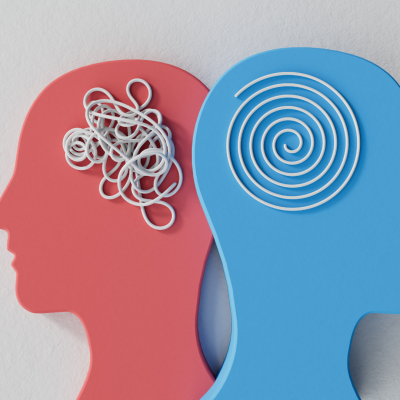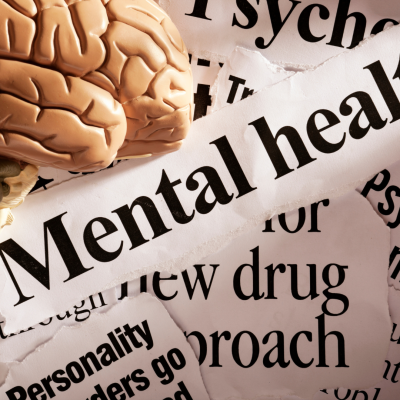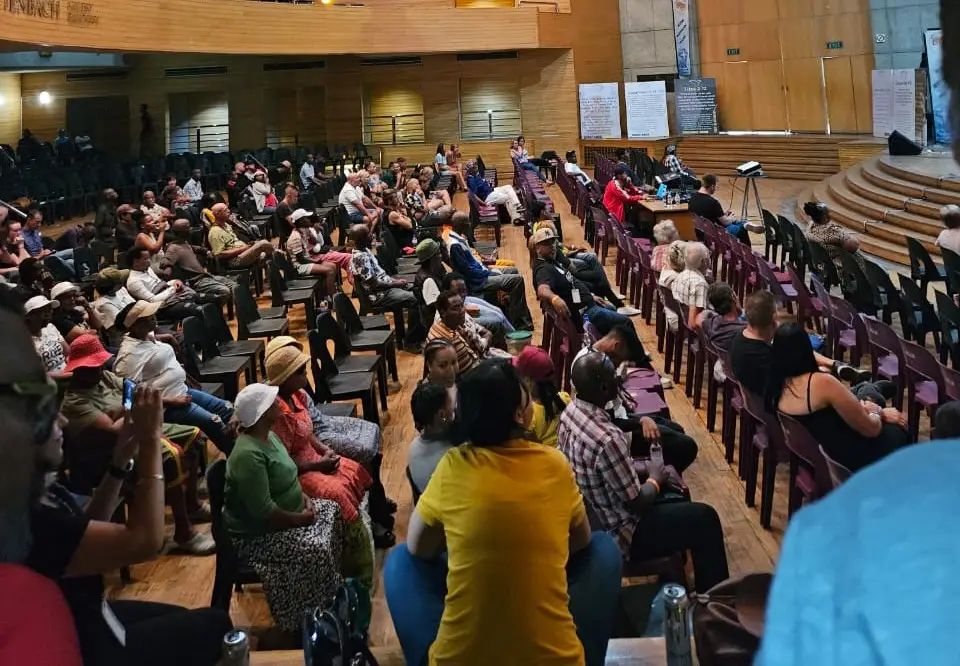Virtual Counselling Services
Your Path to Well-being, Accessible Anywhere
Life can present challenges that feel overwhelming, but you don’t have to face them alone. Our Virtual Counselling Services offer a convenient, confidential, and effective way to connect with experienced therapists from the comfort and privacy of your own space. Whether you’re navigating stress, anxiety, relationship issues, career changes, or simply seeking personal growth, we’re here to support you on your journey to a healthier, happier you.
Why Choose Virtual Counselling?
Unmatched Convenience
Say goodbye to travel time and traffic. Access high-quality therapy from your home, office, or any location with an internet connection. This flexibility makes it easier to fit counselling into your busy schedule.
Privacy & Comfort
Engage in sessions in an environment where you feel most at ease and secure, enhancing your ability to open up and engage meaningfully.
Accessibility
Virtual counseling removes geographical barriers, allowing you to connect with the right therapist for your needs, regardless of location. It also makes therapy more accessible for individuals with mobility challenges or those in remote areas.
Flexibility
We offer a range of appointment times to accommodate various schedules, including evenings and weekends.
Continuity of Care
Maintain consistent support even when you're traveling or if circumstances prevent in-person visits.
Confidential & Secure
We utilize secure, encrypted platforms to ensure your sessions are private and your personal information is protected. Your confidentiality is our top priority.
How It Works
Schedule Your Free Consultation/Initial Session
Contact us via our website, phone, or email to set up your first appointment. You can choose a brief free consultation to see if virtual counseling is right for you, or book your initial assessment session directly.
Secure Platform Access
Before your session, you'll receive a secure link to our confidential video conferencing platform. No special software is needed – simply click the link at your appointment time.
Connect with Your Therapist
Log in from your chosen private space. Your therapist will be there to greet you, and your session will proceed much like an in-person meeting, allowing for real-time conversation and connection.
Personalized Support
Your therapist will work collaboratively with you to understand your needs, set goals, and develop a personalized treatment plan tailored to your unique situation.
Our Areas of Expertise
Our experienced virtual counselors specialize in a wide range of areas, including:
Anxiety & Stress Management
Developing coping strategies for anxiety, panic attacks, and everyday stress.
Depression & Mood Disorders
Support for managing symptoms, improving mood, and fostering resilience.
Relationship & Couples Counselling
Enhancing communication, resolving conflicts, and strengthening bonds.
Grief &
Loss
Processing loss and navigating the emotional journey of bereavement.
Life Transitions
Support through major life changes such as career shifts, relocation, or significant personal events.
Self-Esteem & Personal Growth
Building confidence, fostering self-awareness, and achieving personal potential.
Trauma
Recovery
Creating a safe space for healing from past traumatic experiences.
Work-Related Stress & Burnout
Strategies for managing workplace pressures and preventing burnout.
Is Virtual Counselling Right for You?
Virtual counseling is an excellent option for many individuals. It’s particularly beneficial if you:
Have a busy schedule or find it difficult to travel to appointments.
Live in a remote area or have limited access to local therapists.
Prefer the comfort and privacy of your own home for sessions.
Are seeking specialized support not available locally.
Need consistent care while traveling.
Are comfortable with technology and video calls.
If you’re unsure, we encourage you to schedule a free consultation to discuss your needs and see if virtual counselling is a good fit.
Ready to Begin Your Journey?
Taking the first step towards better well-being is a powerful act. We’re here to make that step as easy as possible.

Mental Health
Our core commitment in mental health is to provide accessible, compassionate, and effective support that empowers individuals to achieve optimal mental well-being.

Breaking the Stigma
One of the most significant barriers to mental health care is the pervasive stigma surrounding these conditions. People often feel ashamed, embarrassed, or fear judgment if they admit to struggling with their mental health.

Education
Promoting understanding and reducing stigma around mental health through educational workshops, public campaigns, and resource dissemination, fostering a more informed and supportive community.

What Can You Do
By normalizing discussions around mental health, it encourages individuals to seek help without fear of judgment, reducing the isolation many people with mental health conditions experience.

Awareness
Awareness campaigns help to dismantle these stereotypes and foster an open, accepting environment where mental health is treated with the same importance as physical health.

Self-Awareness
When mental health is prioritized, individuals are better equipped to manage challenges, maintain strong relationships, and lead fulfilling lives.
FAQ
What people usually ask
What is mental health?
Mental health refers to our emotional, psychological, and social well-being. It affects how we think, feel, and behave. Good mental health is not just the absence of mental illness; it’s about being able to cope with life’s challenges, work productively, and contribute to our communities.
2. What are some common mental health conditions?
There are many types of mental health conditions, and they can vary in severity and duration. Some common ones include.
Anxiety Disorders: Generalized anxiety disorder, panic disorder, phobias (like social phobia), obsessive-compulsive disorder (OCD), and post-traumatic stress disorder (PTSD).
Mood Disorders: Depression (including major depressive disorder and premenstrual dysphoric disorder) and bipolar disorder.
Eating Disorders: Anorexia nervosa, bulimia nervosa, and binge eating disorder.
Psychotic Disorders: Schizophrenia.
Personality Disorders: Borderline, antisocial, and narcissistic personality disorder.
Substance Use Disorders.
Neurodevelopmental Disorders: ADHD, autism spectrum disorder, and learning disorders (often diagnosed in childhood).
3. What causes mental health problems?
Mental health problems are complex and usually result from a combination of factors, rather than a single cause. These can include:
Genetics and Family History: A predisposition can be inherited.
Brain Chemistry: Imbalances in neurotransmitters (brain chemicals) can affect mood and behavior.
Life Experiences: Stressful life events (e.g., trauma, abuse, loss, financial problems), especially in childhood.
Biological Factors: Traumatic brain injury, prenatal exposure to viruses or toxic chemicals, chronic medical conditions.
Substance Use: Alcohol and recreational drug use can contribute to or worsen mental health issues.
Social Factors: Isolation, loneliness, poverty, and discrimination.
4. How can I identify if I or someone I know might be struggling with a mental health issue?
It’s important to be aware of changes in thoughts, feelings, and behaviors. Some common signs include:
Emotional Changes: Persistent sadness, irritability, excessive worry or fear, extreme mood swings, feelings of guilt or worthlessness, loss of interest or pleasure in activities.
Behavioral Changes: Withdrawal from friends and social activities, changes in sleep patterns (insomnia or sleeping too much), significant changes in appetite or weight, neglecting personal hygiene, increased substance use, difficulty coping with daily problems or stress, aggressive or violent behavior, or self-harm/suicidal thoughts.
Cognitive Changes: Confused thinking, reduced ability to concentrate, difficulty understanding or relating to others, delusions or hallucinations (detachment from reality).
If these changes are significant, persistent (lasting more than about two weeks), and interfere with daily life, it’s a good idea to seek professional help.
5. Can mental health problems be prevented?
While not all mental illnesses can be entirely prevented, proactive measures can significantly decrease the likelihood of developing them or reduce their severity. These include:
Developing strong coping skills for stress.
Building a robust support network of friends and family.
Maintaining a healthy lifestyle (exercise, good sleep, balanced nutrition).
Seeking help early when warning signs appear.
Avoiding substance abuse.
Addressing childhood trauma or neglect.
6. Can mental health problems be cured?
For many mental health conditions, complete recovery is possible with appropriate treatment. For others, treatment can help manage symptoms effectively, allowing individuals to lead fulfilling lives. It’s often more about finding what helps with the issues you face rather than a “cure.”
7. Where can I seek help for mental health concerns in South Africa?
If you or someone you know needs help in South Africa, here are some excellent resources:
South African Depression and Anxiety Group (SADAG): They offer numerous helplines and support groups.
Suicide Crisis Helpline: 0800 567 567 (24-hour toll-free)
Other Helplines: SADAG has various helplines for depression, anxiety, substance abuse, and more. You can find a full list on their website: www.sadag.org
General Practitioners (GPs): Your local doctor can assess your symptoms, offer initial support, prescribe medication if needed, and refer you to mental health specialists.
Mental Health Professionals:
Psychiatrists: Medical doctors specializing in mental health, who can diagnose and prescribe medication.
Psychologists: Provide various forms of psychotherapy (talk therapy) like Cognitive Behavioral Therapy (CBT).
Counsellors/Therapists: Offer support and guidance through talking therapies.
Social Workers: Can provide counselling, support, and connect you with community resources.
Government Clinics: Many communities have government clinics that offer mental health services at reduced rates or free of charge.
Workplace Support: Some workplaces offer Employee Assistance Programs (EAPs) that provide free access to counselling and support.
Religious Organizations: For some, faith communities can offer a valuable source of support.
8. What should I do if I’m worried about a friend or relative?
Talk to them: Gently express your concerns and let them know you’re there for them. Listen without judgment.
Encourage them to seek help: Suggest they talk to a doctor, counsellor, or call a helpline. Offer to go with them to an appointment if they’re comfortable.
Educate yourself: Learn more about mental health conditions to better understand what they might be going through.
Don’t try to be their therapist: While support is crucial, professional help is often necessary.
If there’s an immediate risk of harm: Do not ignore suicidal thoughts or plans. Call an emergency number (like 10111 in South Africa) or take them to the nearest emergency room. SADAG’s Suicide Crisis Helpline (0800 567 567) is also vital in such situations.
9. What are some common treatments for mental health conditions?
Treatment varies depending on the condition and individual needs, but common approaches include:
Psychotherapy (Talk Therapy): Such as Cognitive Behavioral Therapy (CBT), Dialectical Behavior Therapy (DBT), psychodynamic therapy, etc.
Medication: Antidepressants, anti-anxiety medications, mood stabilizers, antipsychotics, etc., prescribed by a psychiatrist or GP.
Lifestyle Changes: Regular exercise, healthy diet, sufficient sleep, mindfulness, stress management techniques.
Support Groups: Connecting with others who have similar experiences can provide a sense of community and shared understanding.
Complementary Therapies: Mindfulness, yoga, meditation, art therapy, etc., often used in conjunction with primary treatments.
Remember, seeking help for mental health is a sign of strength, not weakness.
Our Services for Mental Health Support.
Empowering Minds: Our Services for Mental Health Support.
Empowering Minds: Our Services for Mental Health Support
This statement encapsulates our core mission: to equip individuals with the tools, resources, and understanding they need to navigate their mental health journey successfully. We believe that true well-being comes from within, and our services are designed to unlock that inherent strength and resilience in every person we serve.
I. Deconstructing “Empowering Minds”:
Fostering Self-Efficacy: We help individuals recognize their capacity to manage challenges, make informed decisions about their mental health, and take active steps towards recovery and growth. It’s about shifting from feeling helpless to feeling capable.
Building Resilience: We provide strategies and support to help individuals bounce back from adversity, adapt to stress, and develop coping mechanisms that promote long-term mental wellness.
Promoting Understanding and Awareness: Empowerment begins with knowledge. We help individuals understand their own mental health conditions, triggers, and the various pathways to healing, reducing stigma and encouraging self-advocacy.
Cultivating Inner Strength: Our aim is to help individuals tap into their innate strengths, values, and purpose, which are powerful drivers for positive mental health outcomes.
Encouraging Proactive Well-being: We move beyond just crisis intervention. We empower individuals to engage in preventative measures and lifestyle choices that sustain their mental health over time.
II. Our Comprehensive Services for Mental Health Support:
Our services are built upon a holistic approach, recognizing that mental health is multifaceted and requires tailored support. We offer a range of evidence-based and compassionate interventions designed to meet diverse needs.
A. Individualized Therapy & Counseling:
Description: One-on-one sessions with licensed mental health professionals (e.g., psychologists, counselors, social workers). These sessions provide a safe, confidential space for exploration, processing emotions, and developing coping strategies.
Examples of Modalities (if applicable, be specific to your offerings): Cognitive Behavioral Therapy (CBT), Dialectical Behavior Therapy (DBT), Psychodynamic Therapy, Acceptance and Commitment Therapy (ACT), Trauma-Informed Therapy, Solution-Focused Brief Therapy.
Benefits: Personalized support, deep self-exploration, skill development, emotional regulation, trauma processing.
B. Group Therapy & Support Groups:
Description: Facilitated sessions where individuals with similar experiences or challenges can connect, share, and learn from each other in a supportive environment.
Examples: Anxiety Support Group, Depression Management Group, Grief & Loss Support Group, Stress Reduction Workshops, Skills-Based Groups (e.g., social skills, anger management).
Benefits: Reduced isolation, shared experiences, diverse perspectives, peer support, practical skill-building in a social context.
C. Psychiatric Consultation & Medication Management (if offered or partnered with):
Description: Evaluation and treatment by a qualified psychiatrist, including medication assessment, prescription, and ongoing monitoring when appropriate.
Benefits: Expert medical opinion, symptom reduction through pharmacological intervention, integrated care approach.
D. Educational Workshops & Wellness Programs:
Description: Proactive programs designed to educate the community and individuals on various aspects of mental health, promoting preventative care and healthy coping mechanisms.
Examples: Stress Management Techniques, Mindfulness & Meditation Workshops, Building Healthy Relationships, Understanding Anxiety/Depression, Sleep Hygiene, Resilience Training.
Benefits: Increased mental health literacy, practical tools for self-care, stigma reduction, community engagement.
E. Crisis Intervention & Referral Services (if applicable):
Description: Immediate support for individuals experiencing acute mental health crises, often involving assessment, de-escalation, and connection to appropriate higher levels of care or emergency services.
Benefits: Safety, stabilization, critical support during vulnerable times, seamless transition to ongoing care.
F. Family Therapy & Couples Counseling (if offered):
Description: Sessions involving families or couples to address communication breakdowns, relationship challenges, and how mental health impacts family dynamics.
Benefits: Improved family functioning, healthier communication patterns, mutual understanding, stronger support systems.
III. Our Commitment to Empowerment:
Client-Centered Approach: We place the individual at the heart of their care plan, respecting their autonomy, goals, and unique journey.
Experienced & Compassionate Professionals: Our team comprises highly qualified and empathetic professionals dedicated to providing the highest standard of care.
Confidentiality & Trust: We uphold the strictest standards of privacy, creating a safe and trustworthy environment for all.
Holistic & Integrative Care: We recognize the interconnectedness of mind, body, and spirit, and aim to support overall well-being.
Accessibility & Inclusivity: We strive to make our services accessible to all who need them, regardless of background, identity, or financial situation.
Individual Therapy Sessions
Individual therapy, also known as psychotherapy or counseling, is a collaborative process between you and a trained therapist. It’s a space dedicated solely to your needs and goals, allowing for in-depth exploration of your thoughts, feelings, behaviors, and experiences.
Key Aspects of Our Individual Therapy Sessions:
Confidential and Safe Environment: Your privacy is paramount. All discussions within therapy sessions are strictly confidential, creating a safe and non-judgmental space for you to open up and be vulnerable.
Personalized Approach: We understand that everyone is unique. Our therapists tailor their approach to your specific needs, concerns, and personality. This might involve drawing from various therapeutic modalities (e.g., Cognitive Behavioral Therapy (CBT), Psychodynamic Therapy, Humanistic Therapy, etc.) to find what resonates best with you.
Dedicated Time for You: Unlike group settings or casual conversations, individual therapy provides uninterrupted time focused entirely on your well-being. This allows for deep dives into complex issues and consistent progress.
Skilled and Empathetic Therapists: Our therapists are highly trained professionals with expertise in a wide range of mental health concerns. They provide compassionate support, active listening, and objective insights to help you navigate your challenges.
Goal-Oriented Process: While exploration is key, therapy is also about working towards tangible goals. We’ll collaborate with you to identify what you want to achieve from therapy and develop actionable steps to get there. These goals might include:
Reducing symptoms of anxiety or depression
Improving communication skills
Coping with grief or loss
Managing stress effectively
Healing from past trauma
Building self-esteem
Navigating life transitions
Developing healthier relationships
Benefits of Individual Therapy:
Increased Self-Awareness: Gain a deeper understanding of your thoughts, emotions, patterns of behavior, and how they impact your life.
Improved Coping Mechanisms: Learn healthier and more effective strategies to manage stress, anxiety, depression, and other challenging emotions.
Enhanced Problem-Solving Skills: Develop the ability to approach difficulties with a clearer mind and find constructive solutions.
Emotional Processing and Healing: Work through past traumas, unresolved conflicts, and painful experiences in a supportive environment.
Better Relationships: Understand your relational patterns and develop skills for more fulfilling and healthier interactions with others.
Personal Growth and Development: Uncover your strengths, build resilience, and unlock your full potential.
Reduced Symptoms: Experience a decrease in symptoms associated with various mental health conditions, leading to greater overall well-being.
Non-Judgmental Support: Receive unbiased feedback and support from a trained professional who is invested in your growth.
Who Can Benefit from Individual Therapy?
Individual therapy is beneficial for anyone experiencing:
Stress, anxiety, or depression
Relationship difficulties
Grief and loss
Trauma
Low self-esteem
Major life transitions (e.g., career change, divorce, new parenthood)
Anger management issues
Substance abuse concerns (often in conjunction with other support)
A desire for personal growth and self-discovery
How to Get Started:
Initial Consultation: We typically begin with an initial consultation to discuss your needs, answer any questions you may have, and determine if individual therapy is the right fit for you.
Matching with a Therapist: Based on your needs, we will help match you with a therapist whose expertise and approach align with your goals.
Scheduling Sessions: Sessions are typically scheduled on a regular basis (e.g., weekly or bi-weekly), but frequency can be adjusted based on your progress and needs.
Individual therapy is an investment in yourself and your mental well-being. It provides a powerful pathway to healing, growth, and a more fulfilling life.
Key Areas Addressed
Communication skills and conflict resolution
Rebuilding trust and understanding
Navigating life changes, such as divorce or the loss of a loved one
Supporting family members with specific mental health issues
Conferencing
Mental health conferencing plays a crucial role in advancing mental well-being on multiple fronts. These events bring together a diverse range of stakeholders, from professionals and researchers to individuals with lived experience and policymakers, to discuss, learn, and collaborate on addressing mental health challenges.
Here’s a breakdown of their importance:
1. Education and Awareness:
Dissemination of Knowledge: Conferences are platforms for sharing the latest research, evidence-based practices, and innovative treatment approaches in mental health. Attendees gain valuable insights into various mental health issues, coping strategies, and available resources.
Raising Awareness: They promote a deeper understanding of mental health conditions, their impact on individuals and society, and the importance of prioritizing mental well-being.
Equipping Professionals: Healthcare professionals and other service providers can enhance their skills and improve the quality of care they provide by learning about new developments and best practices.
2. Reducing Stigma and Promoting Acceptance:
Normalizing Conversations: By fostering open discussions and sharing personal stories, mental health conferences help to normalize conversations about mental well-being, breaking down stereotypes and misconceptions.
Challenging Discriminatory Attitudes: They actively challenge stigmatizing beliefs and promote respectful, inclusive language, encouraging individuals to seek help without fear of judgment.
Building Empathy: Hearing diverse perspectives, including those of individuals with lived experience, can foster empathy and understanding among attendees.
3. Fostering Collaboration and Networking:
Interdisciplinary Exchange: Conferences bring together professionals from various disciplines (psychiatrists, psychologists, social workers, nurses, etc.) to exchange ideas and explore collaborative approaches to care.
Building Support Networks: They provide opportunities for attendees to connect with peers, experts, and like-minded individuals, creating valuable support networks and fostering a sense of community.
Facilitating Partnerships: These events can lead to the formation of new partnerships for research, advocacy, and the development of mental health initiatives.
4. Informing Policy and Practice:
Bridging the Gap: Conferences often serve as a bridge between research findings and real-world application, helping to translate evidence into effective policies and practices.
Influencing Policy Makers: By bringing together researchers, policymakers, and practitioners, these events can influence public policy and advocate for improved mental health resources and services.
Addressing Disparities: Discussions often highlight mental health inequalities and explore strategies to provide more equitable and culturally competent care.
5. Promoting Self-Care and Well-being:
Individual Growth: Attendees can gain insights into self-care strategies and resilience-building techniques, promoting their own mental well-being.
Holistic Approach: Many conferences incorporate wellness activities, such as mindfulness sessions or art therapy, demonstrating the importance of a holistic approach to mental health.
In essence, mental health conferencing is vital for creating a more informed, accepting, and supportive society when it comes to mental well-being. They are catalysts for change, driving advancements in research, improving clinical practice, influencing policy, and ultimately, empowering individuals to prioritize and seek support for their mental health.
Couples & Family Therapy Sessions: Fostering Connection, Growth, and Resolution
Our Couples & Family Therapy sessions are designed to provide a supportive and confidential space for individuals within a relationship or family unit to address challenges, improve communication, strengthen bonds, and foster personal and collective growth. We believe that by understanding the dynamics at play and developing healthier interaction patterns, relationships can transform and thrive.
What We Address: Common Areas of Focus
Our sessions are tailored to the unique needs of each couple or family, but common areas we often address include:
Communication Breakdown:
Difficulty expressing needs and feelings.
Frequent misunderstandings or misinterpretations.
Escalating arguments or conflict avoidance.
Lack of active listening.
Conflict Resolution:
Developing constructive strategies for disagreements.
Learning to navigate differences respectfully.
Moving past stalemates and recurring arguments.
Life Transitions & Stressors:
Navigating major life changes (e.g., marriage, parenthood, career shifts, empty nest, retirement).
Coping with external stressors (e.g., financial difficulties, health issues, grief and loss).
Adjusting to blended family dynamics.
Emotional Disconnect & Intimacy Issues:
Feeling distant or emotionally disengaged.
Addressing issues around physical intimacy.
Rebuilding trust after betrayal or infidelity.
Parenting Challenges:
Developing consistent and effective parenting strategies.
Addressing behavioral issues in children/adolescents.
Navigating co-parenting dynamics after separation or divorce.
Family Dynamics & Roles:
Understanding unhealthy patterns and roles within the family system.
Addressing sibling rivalries or intergenerational conflicts.
Setting healthy boundaries.
Mental Health Concerns Impacting the Family:
Supporting a family member dealing with anxiety, depression, substance abuse, or other mental health challenges, and understanding its impact on the family system.
Our Therapeutic Approach: How We Work
While specific techniques vary based on the therapist’s modality and the family’s needs, our approach generally involves:
Systemic Perspective: We view the couple or family as a system where each member’s actions influence the others. We focus on identifying patterns of interaction rather than blaming individuals.
Facilitated Dialogue: The therapist acts as a neutral facilitator, guiding conversations, ensuring all voices are heard, and helping members communicate more effectively.
Identifying Strengths: We highlight existing strengths and resources within the couple or family to build upon for positive change.
Skill Building: We teach practical skills such as:
Active Listening: Truly hearing and understanding another’s perspective.
“I” Statements: Expressing feelings and needs clearly without blame.
Empathy Development: Understanding and sharing the feelings of another.
Problem-Solving Techniques: Collaboratively finding solutions to challenges.
Boundary Setting: Defining healthy limits in relationships.
Exploring Underlying Issues: We delve into deeper emotional patterns, past experiences, and unspoken expectations that may be contributing to current difficulties.
Goal Setting: Collaboratively establishing clear, achievable goals for therapy.
Benefits of Couples & Family Therapy
Engaging in these sessions can lead to:
Improved Communication: Learning to express yourselves more clearly and listen more effectively.
Stronger Bonds & Connection: Rebuilding intimacy, trust, and emotional closeness.
Effective Conflict Resolution: Navigating disagreements constructively and respectfully.
Increased Understanding & Empathy: Gaining insight into each other’s perspectives and experiences.
Healthier Family Dynamics: Breaking negative cycles and creating more supportive interactions.
Enhanced Problem-Solving Skills: Developing collaborative approaches to challenges.
Personal Growth: Individual members often experience personal insight and development within the relational context.
Greater Overall Well-being: Creating a more harmonious and fulfilling home environment.
Who Can Benefit?
Couples & Family Therapy is beneficial for:
Couples facing any stage of relationship difficulty, from minor disagreements to significant crises.
Families navigating complex dynamics, intergenerational issues, or specific challenges with children or adolescents.
Individuals who wish to improve their relationships within the context of a couple or family system.
Our Trauma Recovery Program
Core Components of a Trauma Recovery Program:
Thorough Assessment and Individualized Treatment Planning:
Initial Evaluation: A mental health professional conducts a comprehensive assessment of the individual’s trauma history, symptoms (e.g., anxiety, depression, flashbacks, sleep disturbances), current life circumstances, and strengths.
Personalized Plan: Based on the assessment, a tailored treatment plan is developed, outlining specific therapeutic goals and interventions. This acknowledges that trauma affects individuals differently, and recovery is not a one-size-fits-all journey.
Evidence-Based Therapeutic Modalities: Programs typically integrate a range of therapies proven effective in trauma treatment. These may include:
Cognitive Behavioral Therapy (CBT): Focuses on identifying and changing negative thought patterns and behaviors that contribute to distress. This can involve:
Cognitive Processing Therapy (CPT): Helps individuals challenge and modify unhelpful beliefs related to the trauma, often focusing on themes of safety, trust, power, esteem, and intimacy.
Trauma-Focused Cognitive Behavioral Therapy (TF-CBT): Particularly effective for children and adolescents, combining psychoeducation, challenging beliefs, and re-interpreting the traumatic event through journaling.
Eye Movement Desensitization and Reprocessing (EMDR): An 8-stage protocol that helps reduce the emotional distress associated with traumatic memories through guided eye movements or other bilateral stimulation.
Exposure Therapy (PE – Prolonged Exposure): Gradually exposes individuals to trauma-related reminders (memories, situations, objects) in a safe and controlled environment to reduce fear and avoidance. This can be imaginal (recounting the event) or in-vivo (facing triggers in real life).
Dialectical Behavior Therapy (DBT): Often used for complex trauma, it teaches skills in mindfulness, emotional regulation, distress tolerance, and interpersonal effectiveness.
Somatic Therapies (e.g., Somatic Experiencing): Focus on the body’s physical sensations and help release stored trauma, promoting self-regulation and a sense of safety within one’s own body.
Psychodynamic Psychotherapy: Explores how past experiences, particularly early childhood and family dynamics, have shaped current emotions and behaviors.
Narrative Exposure Therapy (NET): Helps individuals construct a chronological narrative of their life story, focusing on various traumas, to integrate these experiences and find meaning.
Skill Building and Coping Strategies: A crucial part of recovery is equipping individuals with practical tools to manage symptoms and navigate daily life. This includes:
Emotional Regulation: Learning to identify, understand, and manage intense emotions without being overwhelmed.
Mindfulness and Grounding Techniques: Practices like deep breathing, sensory awareness, and present-moment focus to manage anxiety, flashbacks, and dissociation.
Stress Management: Developing strategies to cope with everyday stressors and prevent them from escalating.
Identifying and Managing Triggers: Recognizing cues that remind them of the trauma and developing effective responses.
Self-Care Practices: Emphasizing the importance of physical well-being (sleep, nutrition, exercise) and engaging in activities that bring joy and relaxation.
Boundary Setting: Learning to establish and maintain healthy boundaries in relationships to protect against re-traumatization and foster self-respect.
Safety Planning: For individuals with recurring triggers or crisis situations, developing a plan that includes identifying safe spaces, emergency contacts, and coping strategies.
Support Systems and Environment:
Individual Therapy: One-on-one sessions with a trained therapist for personalized guidance and processing.
Group Therapy: Provides a supportive space to share experiences, reduce feelings of isolation, and learn from others facing similar challenges.
Family Involvement: In some cases, involving family members to help them understand the impact of trauma and learn how to support their loved one’s recovery.
Creating a Safe Environment: Programs strive to create a physically and emotionally safe space, both within the therapeutic setting and by helping individuals establish safety in their own lives. This includes an emphasis on trustworthiness and collaboration.
Progress Monitoring and Integration:
Regular Review: Therapists regularly review progress and adjust the treatment plan as needed to ensure effective recovery.
Homework and Practice: Assignments between sessions help reinforce learned skills and apply them in real-life situations.
Post-Traumatic Growth: Supporting individuals in finding meaning and positive transformation in the aftermath of trauma, cultivating resilience, and integrating their experiences into a new self-narrative.
Benefits of a Trauma Recovery Program:
Participating in a well-structured trauma recovery program can lead to profound positive changes, including:
Reduced symptoms of anxiety, depression, and PTSD (e.g., intrusive memories, flashbacks, hypervigilance, emotional numbness).
Improved emotional regulation and ability to cope with distressing feelings.
Development of healthy coping mechanisms.
Enhanced self-awareness and personal growth.
Improved relationships and social connections.
Greater sense of safety, control, and empowerment.
Reduced feelings of guilt and shame.
Increased self-confidence and self-esteem.
Better sleep and overall physical well-being.
Increased ability to engage in daily activities and enjoy life.
Prevention of unhealthy coping mechanisms, such as substance abuse.
Stages of Trauma Recovery (as conceptualized by Judith Herman):
While recovery is not linear, many programs are guided by a staged approach, often based on Judith Herman’s model:
Safety and Stabilization: Focusing on establishing a sense of safety in the present, developing coping skills, and stabilizing immediate symptoms (e.g., addressing addictions or severe mental health illnesses).
Remembrance and Mourning: Gradually processing traumatic memories in a safe and controlled environment, allowing for emotional expression and grief.
Reconnection and Integration: Reconnecting with life, relationships, and a sense of self, integrating the trauma into one’s life story, and finding meaning.
Trauma Recovery in South Africa:
South Africa, unfortunately, has a high prevalence of trauma due to various factors. As a result, there are facilities and professionals offering trauma counselling and recovery programs. These programs often integrate the evidence-based practices mentioned above, with some specifically addressing issues like gender-based violence or co-occurring substance use disorders. Medical aid schemes like Discovery also offer benefits for trauma recovery.
Mental health education
Mental health education is crucial for individuals and communities alike, offering a wide range of benefits that contribute to overall well-being. Here’s a breakdown of its key importance:
1. Reducing Stigma and Misunderstanding:
Dispelling Myths: Mental health education actively combats the stigma associated with mental illness by providing accurate information and dispelling common misconceptions. Many people still view mental health conditions as a sign of weakness or believe individuals with mental health issues are dangerous, which is simply untrue.
Fostering Acceptance: By educating the public, we can create a more accepting and supportive society where individuals feel comfortable discussing their mental health and seeking help without fear of judgment or discrimination. This openness encourages early intervention, which can significantly improve outcomes.
2. Promoting Early Intervention and Prevention:
Recognizing Signs and Symptoms: Education equips individuals with the knowledge to recognize the signs and symptoms of mental health conditions in themselves and others.
Timely Support: Early intervention is critical. By identifying concerns sooner, individuals can seek help before conditions worsen, leading to better chances of recovery and reducing the long-term impact of mental health issues.
Developing Coping Mechanisms: Mental health education also focuses on prevention by teaching healthy coping mechanisms, stress management techniques, and the importance of social connections, thereby reducing the likelihood of developing certain mental health conditions.
3. Empowering Individuals and Families:
Self-Management and Recovery: For those directly affected by mental health conditions, understanding their condition allows them to take an active role in their treatment and recovery. It helps them recognize symptoms, adhere to treatment plans, and develop effective coping strategies.
Informed Decision-Making: Education enables individuals to make informed decisions about their mental well-being, including choosing suitable management methods like therapy, medication, or lifestyle changes.
Supporting Loved Ones: Families and caregivers also benefit immensely. A thorough understanding of mental health conditions allows them to provide more effective and empathetic care and cope with the challenges of supporting a loved one.
4. Enhancing Mental Health Literacy:
Mental health literacy is the knowledge and beliefs about mental disorders that aid in their recognition, management, or prevention. It involves:
Understanding how healthy minds function.
Knowledge of common mental illnesses, their causes, and treatments.
Awareness of available self-help and professional resources.
Attitudes that promote recognition and appropriate help-seeking.
5. Impact in Schools and Educational Settings:
Improved Academic Performance: Mental health and academic success are closely linked. When students receive support for their mental health, they are better equipped to focus on their studies, leading to improved concentration, motivation, and overall educational outcomes.
Developing Social-Emotional Skills: Mental health education cultivates essential social skills, helping students develop healthy relationships, empathy, and effective communication.
Creating a Positive School Environment: Schools that prioritize mental health education foster a culture of acceptance, understanding, and empathy, making students feel valued and supported. This can also lead to reduced disciplinary issues and a better overall school climate.
Building Resilience: It teaches students coping strategies for stress, anxiety, and other challenges, boosting their resilience—the ability to bounce back from setbacks.
In essence, mental health education is a powerful tool for creating a more compassionate, understanding, and mentally healthy society. By fostering knowledge, reducing stigma, and promoting early intervention, it empowers individuals to prioritize their mental well-being and seek the support they need.
Mental health Seminars
Mental health education is crucial for individuals and communities alike, offering a wide range of benefits that contribute to overall well-being. Here’s a breakdown of its key importance:
1. Reducing Stigma and Misunderstanding:
Dispelling Myths: Mental health education actively combats the stigma associated with mental illness by providing accurate information and dispelling common misconceptions. Many people still view mental health conditions as a sign of weakness or believe individuals with mental health issues are dangerous, which is simply untrue.
Fostering Acceptance: By educating the public, we can create a more accepting and supportive society where individuals feel comfortable discussing their mental health and seeking help without fear of judgment or discrimination. This openness encourages early intervention, which can significantly improve outcomes.
2. Promoting Early Intervention and Prevention:
Recognizing Signs and Symptoms: Education equips individuals with the knowledge to recognize the signs and symptoms of mental health conditions in themselves and others.
Timely Support: Early intervention is critical. By identifying concerns sooner, individuals can seek help before conditions worsen, leading to better chances of recovery and reducing the long-term impact of mental health issues.
Developing Coping Mechanisms: Mental health education also focuses on prevention by teaching healthy coping mechanisms, stress management techniques, and the importance of social connections, thereby reducing the likelihood of developing certain mental health conditions.
3. Empowering Individuals and Families:
Self-Management and Recovery: For those directly affected by mental health conditions, understanding their condition allows them to take an active role in their treatment and recovery. It helps them recognize symptoms, adhere to treatment plans, and develop effective coping strategies.
Informed Decision-Making: Education enables individuals to make informed decisions about their mental well-being, including choosing suitable management methods like therapy, medication, or lifestyle changes.
Supporting Loved Ones: Families and caregivers also benefit immensely. A thorough understanding of mental health conditions allows them to provide more effective and empathetic care and cope with the challenges of supporting a loved one.
4. Enhancing Mental Health Literacy:
Mental health literacy is the knowledge and beliefs about mental disorders that aid in their recognition, management, or prevention. It involves:
Understanding how healthy minds function.
Knowledge of common mental illnesses, their causes, and treatments.
Awareness of available self-help and professional resources.
Attitudes that promote recognition and appropriate help-seeking.
5. Impact in Schools and Educational Settings:
Improved Academic Performance: Mental health and academic success are closely linked. When students receive support for their mental health, they are better equipped to focus on their studies, leading to improved concentration, motivation, and overall educational outcomes.
Developing Social-Emotional Skills: Mental health education cultivates essential social skills, helping students develop healthy relationships, empathy, and effective communication.
Creating a Positive School Environment: Schools that prioritize mental health education foster a culture of acceptance, understanding, and empathy, making students feel valued and supported. This can also lead to reduced disciplinary issues and a better overall school climate.
Building Resilience: It teaches students coping strategies for stress, anxiety, and other challenges, boosting their resilience—the ability to bounce back from setbacks.
In essence, mental health education is a powerful tool for creating a more compassionate, understanding, and mentally healthy society. By fostering knowledge, reducing stigma, and promoting early intervention, it empowers individuals to prioritize their mental well-being and seek the support they need.
Our Work

Mental Health Seminar MT
An engaging and insightful mental health seminar featuring the incredibly talented students of the Market Theatre. This important event delved deeply into various key aspects of mental health awareness and its significance in our lives, highlighting the impact it has on our well-being, relationships, and overall quality of life.

Mental Health Seminar
An engaging and insightful mental health seminar. This important event delved deeply into various key aspects of mental health awareness and its significance in our lives, highlighting the impact it has on our well-being, relationships, and overall quality of life.

Mental Health Seminar MPL
An engaging and insightful mental health seminar featuring the incredibly talented students of the Market Photo Lab. This important event delved deeply into various key aspects of mental health awareness and its significance in our lives, highlighting the impact it has on our well-being, relationships, and overall quality of life.

International Men's Summit24 Conference
An engaging and insightful Men's conference featuring the incredibly talented EMPOWAWORX. This important event delved deeply into various key aspects of men and mental health awareness and its significance in our lives, highlighting the impact it has on our well-being, relationships, and overall quality of life.

Mental Health Seminar UJ
An engaging and insightful mental health seminar featuring the incredibly talented students of University of Johannesburg. This important event delved deeply into various key aspects of mental health awareness and its significance in our lives, highlighting the impact it has on our well-being, relationships, and overall quality of life.

Mental Health Seminar WITS
An engaging and insightful mental health seminar featuring the incredibly talented students of University of the Witwatersrand. This important event delved deeply into various key aspects of mental health awareness and its significance in our lives, highlighting the impact it has on our well-being, relationships, and overall quality of life.
